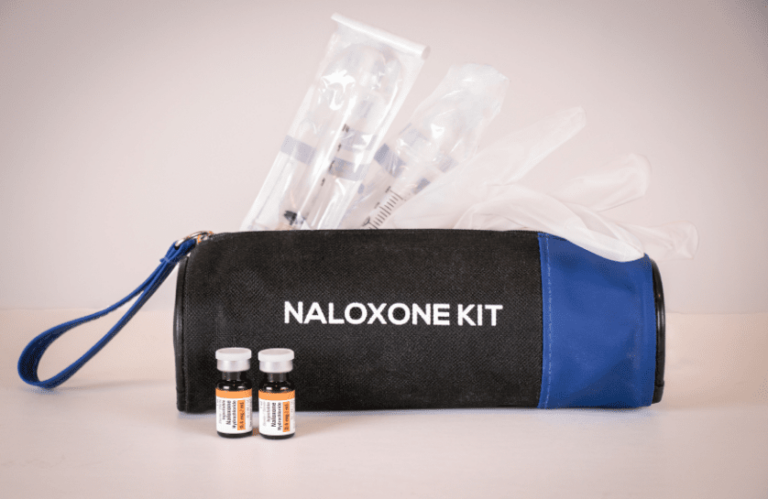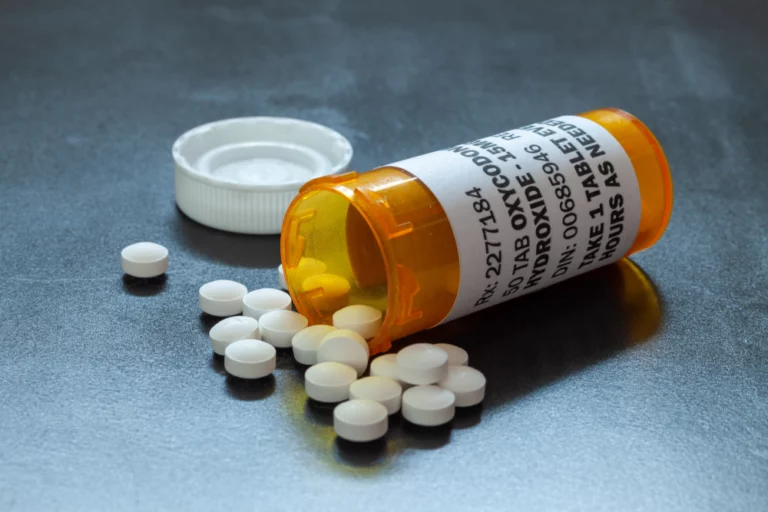Rehab for Methamphetamine Addiction in Louisville, KY: An Informative Guide
If you are seeking rehab for methamphetamine addiction in Louisville, Kentucky, we are here to help you. Results from the National Survey on Drug Use and Health suggest that roughly 14 million Americans have tried methamphetamine at least once. Where to get treatment is something that individuals must decide on their own.
There may be places that offer rehabilitative services close to where you live, and this can be a great choice for those who would like their family and loved ones to be involved in their journey to sobriety, or to be able to visit from time to time. On the other hand, some people may benefit from going to a recovery facility that is not close to any of the stressors that could lead to substance abuse. Ultimately, the decision is yours to make. This article will explain meth addiction, its signs, and the many treatment options available.
What is Methamphetamine?
Meth, a very powerful and addictive central nervous system stimulant, is related to amphetamine. This drug was created from amphetamine in the beginning of the 20th century to treat issues like congestion and respiratory difficulties. After the Controlled Substances Act was passed in 1970, meth, as well as other stimulants such as amphetamine and cocaine, were labeled as Schedule II drugs, having a high possibility of abuse and potentially causing extreme physical reliance.

Today, methamphetamine is illicit and made in clandestine laboratories with various chemicals. The drug can be smoked, snorted, or injected. According to the 2019 National Survey on Drug Use and Health, 2 million people aged 12 or above made use of methamphetamine in the past year, making it the second most commonly misused stimulant.
How Addictive is Meth?
Meth is extremely addictive. When someone takes meth, a surge of dopamine is sent to their brain. This hormone is responsible for managing movement, focusing, experiencing pleasure, and finding enjoyment. The dopamine high exaggerates these qualities, and people usually become hooked on the sensation. It is difficult to obtain the same level of joy, elation, and concentration without the drug, so users must continue to take meth to obtain the same feeling. Eventually, people become addicted to the feeling meth provides, which leads to significant problems.
When you start using methamphetamine regularly, it changes the brain’s ability to make decisions. In the beginning, you must consciously choose to use the drug, but eventually, it becomes automatic, like blinking or inhaling. The more you use meth, the more your body acclimates to its effects, causing you to no longer experience the same intense high as you did when you first tried the drug.
Signs of Meth Addiction
The consumption of methamphetamine can be hazardous to one’s health and can even lead to addiction. Addiction is an ongoing disorder that is characterized by an uncontrollable urge to use meth despite any harmful results. Addiction usually becomes increasingly severe over time and can only be medically diagnosed. However, there are numerous indications and effects of meth addiction. To be clinically diagnosed with a substance use disorder, an individual must manifest at least two of the following symptoms that are universal to addiction:
- Intense cravings
- Inability to quit
- Using at inappropriate times
- Developing a tolerance
- Decline in performance at work or in school
- Disinterest in things once enjoyed
- Most time is spent using or procuring more of the substance
- Withdrawal symptoms if use is stopped
It is important to be aware of the potential signs of a meth addiction if you are concerned that you or someone close to you may have an issue with the drug. These warning signs specific to meth addiction may include:
- Burns on lips or fingers
- Extreme weight loss
- Aggression
- Dilated pupils
- Fast speech
- Mood swings
- Isolation
- Facial sores
- Scratching
- Excessive energy
- Inability to sleep

Meth Addiction in Kentucky
Methamphetamine has seen a revival in Kentucky, with the number of related deaths going up threefold from 2013 to 2016, totaling 252 fatalities. In 2017, Jefferson County had over one hundred overdose deaths from either meth or a combination of meth and other substances. This problem isn’t just limited to Kentucky, as the number of fatalities from stimulant overdoses rose by more than a third from 2015 to 2016, amounting to 7500 deaths nationwide.
By the year 2016, the number of methamphetamine arrests in Kentucky was higher than the total of cocaine, heroin, and fentanyl seizure arrests combined. The use of methamphetamine was not limited to just one region in Kentucky, either. The 2017 Crime in Kentucky Report from the Kentucky State Police (KSP) showed that methamphetamine arrests were higher than heroin arrests in each Area Development District, and in the majority of Kentucky’s 120 counties. In 2017, more than 15% of all drug arrests in Kentucky were for methamphetamine, and in certain areas, the number of drug arrests for methamphetamine was more than 25%.
Methamphetamine Addiction Treatment in Louisville, KY
People addicted to meth have multiple treatment options to choose from, taking into account the individual’s specific requirements. Treatment can be administered in a variety of settings with different levels of intensity, depending on the progress made and the requirements of the person seeking treatment. The following treatment options for meth abuse and addiction include the following:
Detox
The majority of individuals with an addiction to meth will experience withdrawals, and the first step to addressing this problem is detox. Stimulant withdrawal is usually less hazardous physically than withdrawing from other substances, such as alcohol, opioids, and sedatives. Nevertheless, some individuals may have seizures when going through meth withdrawal.
Other possible issues include having suicidal thoughts and the chance of overdosing if relapse occurs. Typically, it takes about a week for the withdrawal symptoms to disappear, though the timeline for every individual may be different. Detox should be followed by other treatments focusing on the behavioral and cognitive issues linked to addiction.
Inpatient Rehab
If the person suffering from addiction has a severe or long-term issue, inpatient care may be the best way to treat them. This form of treatment requires clients to reside in the methamphetamine rehabilitation center for the entire period of the treatment. While in a residential or inpatient facility, the individual will have 24/7 clinical supervision, and be given a blend of individual therapy, group therapy, peer support, family counseling, and steady support to assist them in recovery.
Inpatient treatment is beneficial for individuals who have previously relapsed, do not have a strong support system at home, struggle with a co-occurring disorder, abuse multiple substances, or have dropped out of a professional rehab program before.

Outpatient Rehab
Individuals with less serious addiction problems may benefit from outpatient programs. They can receive treatment during the day and then go back to their own home when the sessions are done. These plans offer the needed adaptability for someone to stay employed, go to school, or deal with family responsibilities while working on their meth dependency.
Because of the flexibility outpatient rehab provides, this form of treatment is best suited for individuals who have a milder meth addiction, have a strong support system, are motivated to get sober, and are not especially vulnerable to relapse.
How Long Does Rehab for Methamphetamine Addiction in Louisville, KY Last?
People recovering from addiction have multiple options available to them. A lot of clients prefer to stay in a meth treatment center for a month, but others may gain more from a longer stay. In addition to a 28-30 day program, some facilities provide a 60-day program for those with a more serious addiction.
For individuals struggling with addiction for an extended period of time, a 90-day stay may be even more beneficial. Studies have shown that treatment lengths of 90 days or more lead to better results than shorter programs and can help maintain and reinforce sobriety. The ideal amount of time for a person to stay in treatment will depend on a range of factors, including recovery progress, individual requirements, and the advice of a professional.
What to Expect When Entering a Meth Rehab
If you have never been through rehab before, the thought of it may leave you feeling uncertain. However, the team at a methamphetamine rehabilitation center will provide a supportive and caring atmosphere. Their staff will be sympathetic, understanding, and non-discriminatory, which is conducive to a successful recovery. Once you arrive there, you will be put through an intake assessment. This info will be used to generate a personalized plan of treatment, tailored to your particular requirements, mental health, meth dependency, other drugs of abuse, withdrawal or past treatment issues, etc.
Does Insurance Cover the Cost of Rehab for Methamphetamine Addiction?
Rehab for drug and alcohol addiction is usually taken care of by health insurance. According to ACA, rehab services for substance addiction are one of the essential health benefits, which means insurance purchased on the Health Insurance Marketplace must include addiction treatment. Moreover, insurance providers are obliged to provide basic medical services, including assistance for mental and behavioral health issues as well as substance abuse disorders (SUDs).
Additionally, Mental Health Parity and Addiction Equity Act (MHPAEA) guarantees that all private health insurance plans provide similar coverage for addiction rehab and therapy just like other medical services. Furthermore, insurance companies are not allowed to refuse coverage for any pre-existing conditions, including substance use and dual-diagnosis disorders. This implies that people can apply for health insurance coverage regardless of their prior substance abuse problems.

Rehab for Methamphetamine Addiction in Louisville, Kentucky
Those who are struggling with meth addiction can get help, care, and comprehensive treatment at Louisville Recovery Center. Treatment is essential for many reasons, including informing the person about their reliance on drugs, helping them to stop in a secure manner, targeting the underlying cause of the addiction, and assisting them in learning better ways of managing stress and preventing relapse so that abstinence is maintained.
The type and level of treatment is based on the person’s unique recovery needs and concerns. For those seeking substance abuse treatment in Louisville or the surrounding regions, contact the team at Louisville Recovery Center. Our experts are prepared to offer the necessary resources to support you or someone you care about. Get in touch with us today.







